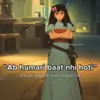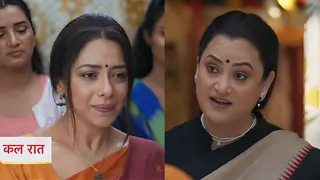A truly enlightening discussion in this thread. I genuinely loved the views expressed by friends here
I agree with the point that Uttarkaand in Ramayana is not fake or fabricated, rather it gets enforced by the start of Ramayana as Luv-Kush singing Ramayan to Raja Ram. For some reason unknown to us Sage Valmiki did not scribe this part...... Generally in all stories, the end is tied up to the start, So Valmiki must have thought of Uttarkand in his mind and accordingly made the start as Luv-Kusha reciting Ramayan.
Also, both Ram and Seeta are divine and fully aware of that divinity though they don't acknowledge it to others. How was otherwise resurrection of Ahilya from stone possible or how would Seeta lift the Shiv Dhanushya as a baby, her being aware of being born from Dharati Mata and later her coming out from Agnipariksha....... Maybe she wanted the world to realise her divinity as the Adi Shakti Energy whom fire could do no harm.
A mother's death at any given point in a child's life is painful. Especially, if the mother chooses to leave the world by her own choice, the agony is worsened. But as stated earlier by Madhuri and other participants, Seeta has already given Luv Kush the nurturing necessary to thrive independently in the world. As stated in earlier posts, her last moment is her own battle to fight..... The battle Mata Laxmi is fighting for the dignity of women in the eras to come.
We must understand what Seeta is rebelling about in her last act. Yug over Yug have passed; yet even today, a married woman faces this sword above her head.... her chastity to prove the world. Why is the same dilemma not existing for men?
In regards with Seeta having thought about her kids, then yes she did! She handed them over to Ram. Their family was such a strong family!.... Had Rama not left his subjects in the hands of Bharat And Shatrughna?..... Had Seeta not left the caring of widowed mother-in-laws in the hands of her sisters?
As stated in one earlier post, Rather Seeta is relieving Rama of having to fight societal thinking. Had the society then truly understood the divinity of Rama and Seeta? How could anybody question their purity, their love in the first place?
There are deeper connections in their story. Perhaps Rama is Vishnu taking live form to bear through Vrinda's curse..... The happily ever after was not to be for Ram and Seeta..... Ram had to go through the pain that Jalandhara had suffured owing to Vishnu's deed.


























